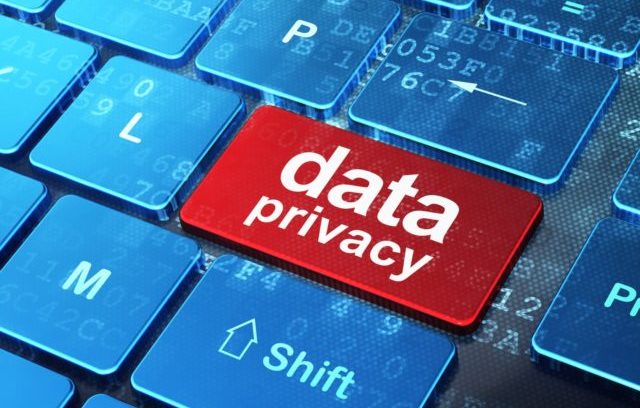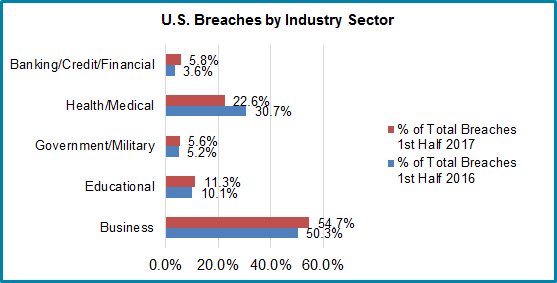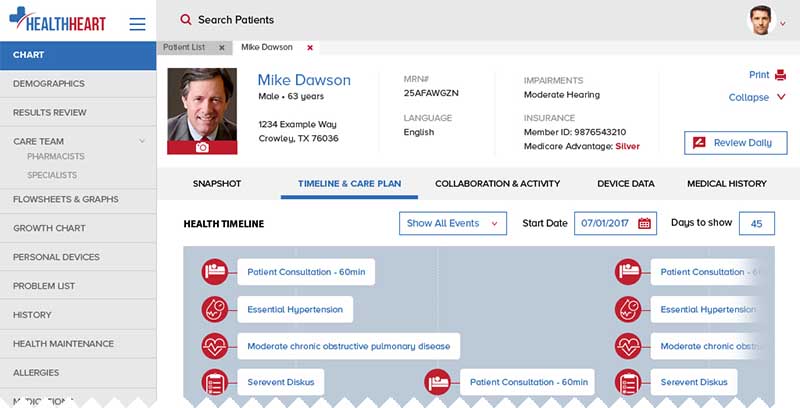
Companies such as HealthHeart are leading the charge when it comes to implementing the security, usability, and scalability of the blockchain to improve on current EHR (electronic health record) offerings.
[Note: This is a sponsored article.]
While blockchain technology is primarily associated with the financial world, its benefits can be applied to other sectors too. Healthcare is one sector in particular that could realize significant benefits through blockchain implementation – especially with regard to patient records.
Current electronic health record (EHR) systems are woefully outdated and plagued with issues like security breaches, cumbersome design and workflows, and over-inflated costs. By managing and storing patient records on the blockchain, EHRs can eliminate the most common challenges and pain points reported by healthcare professionals.
A blockchain-based EHR system can be equally applied to health care providers of any size, from single practitioners to multinational hospital chains. The cost savings of using a system stored on a blockchain are also significant, as platform, storage costs and backups are vastly reduced.
Companies such as HealthHeart are keen to make progress in using blockchain technology to improve the EHR system for both care providers and patients.

Security for Sensitive Patient Data
Over the past several years, there has been a big push in the healthcare industry to “go digital”. In fact, in 2009 the United States government issued a mandate requiring healthcare providers to have transitioned to an EHR by 2015 or face penalties in the form of Medicare reimbursement reductions. A recent survey conducted by the National Center for Health Statistics (NCHS) found that as of 2015, nearly 88% of all office-based physicians were using some form of EHR system.
Unfortunately, the push to digitize patient records has left them more vulnerable than ever to theft by hackers who can sell a complete medical record on the black market for as much as $1000. In the first half of 2017 alone, there have been over 790 data breaches, of which nearly 25% were in the medical / healthcare sector.

In the wake of increasing cyber-attacks and electronic security breaches, securing sensitive patient data is more important than ever before. The unparalleled security that the blockchain offers makes it an ideal foundation for a new type of EHR.
Consider the following key benefits of a decentralized, blockchain-based EHR system:
- Patient records are not stored in a single central location but are instead encrypted and distributed across the entire blockchain, making patient data much more secure and far less vulnerable to hacking.
- Data stored on the blockchain is immutable. It can be amended (e.g. adding new information onto a data record) but it cannot be overwritten. This eliminates the likelihood of patient records falsified or corrupted and maintains data integrity.

HealthHeart – Next Generation EHR
HealthHeart is the first EHR to be developed by veterans of the EHR and network security industries who had the foresight to recognize the possibilities offered for improving existing systems through utilizing the Ethereum blockchain.
The HealthHeart EHR is a holistic approach to healthcare that not only allows all doctors participating in a patient’s care plan to access records but also provides a broader picture of a patient’s general health by syncing with data on apps such as Apple Health. In this way, healthcare providers are able to get a clearer picture of patients’ overall fitness, activity levels, diet, and more, potentially identifying problems that might otherwise have gone unnoticed.
HealthHeart’s advisory board of active, certified medical practitioners has led them to address key concerns in the medical records and healthcare industries allowing secure, intuitive, and user-friendly system tailored to the needs of any size of medical practice or hospital.
HealthHeart Token Pre-Sale and ICO
HealthHeart’s token pre-sale has already begun and will continue until November 30, 2017. The main ICO will begin on December 1, 2017, and last until December 31, 2017, or until the hard cap is reached. There is no minimum investment requirement in order to participate in the token sale and investors can contribute using BTC, ETH, or LTC.
For more information about HealthHeart, please visit healthheart.io or their Telegram chat. You can also connect with them on Facebook, LinkedIn, and Twitter.
Do you think that blockchain is the future of EHRs? How accepting or resistant do you think the healthcare industry will be to such a change? Let us know in the comments below.
Images courtesy of IDTheftCenter.org, Shutterstock, HealthHeart


















